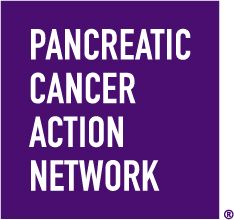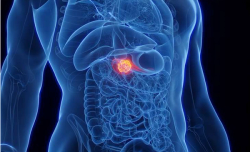- About
- Advertise / Support
- Contact
- CancerNetwork.com
- TargetedOnc.com
- OncLive.com
- OncNursingNews.com
- Terms & Conditions
- Privacy
- Do Not Sell My Information
© 2023 MJH Life Sciences™ and CURE - Oncology & Cancer News for Patients & Caregivers. All rights reserved.
June Is Pride Month
For LGBTQ+ patients, the anxiety of a serious illness like pancreatic cancer can be magnified by a healthcare system that may not always be equipped to provide sensitive, competent care to gender and sexual minorities.
In recognition of Pride Month, Nicolas Clifford, manager of research and education communications for the Pancreatic Cancer Action Network (PanCAN), highlights the unique barriers to care and health disparities facing the LGBTQ+ community, as well as ways PanCAN can help those diagnosed with pancreatic cancer.
Here are some of the unique barriers faced by the LGBTQ+ community:
Fears of mistreatment due to homophobia and/or transphobia:
- Patients may fear they will be denied care or will experience mistreatment based on their sexual orientation and gender identity.
- Some may feel like they need to hide evidence of their orientation or gender identity to receive in-home care.
- For transgender community members, there may be concern that the in-home care team will not respect their gender identity or pronouns and/or misgender them, and in doing so cause intense emotional harm.
- Already limited energy is spent educating providers.
- Fear that the in-home care team will be rude or disrespectful to the patient’s chosen family.
Financial Barriers:
- Due to the complexity of private insurance, Medicare or Medicaid, patients may worry about out-of-pocket costs associated with LGBTQ+ inclusive care.
- Worry that upon hospice admission, transgender patients may lose coverage for hormone therapy due to changes in insurance coverage upon admission or that hospice won’t understand the importance of remaining on this therapy.
- LGBTQ+ communities are more likely to live in poverty and are less likely to be insured.
Institutional Barriers:
- Non-inclusive and discriminatory admissions practices at hospitals, treatment facilities, hospice programs.
- Non-inclusive education and outreach materials.
- Inadequate training for healthcare providers on LGBTQ+ specific issues, gender identity and gender expression.
During Pride Month and beyond, it’s important to raise awareness of the health disparities experienced by the LGBTQ+ community. And when it comes to pancreatic cancer, PanCAN is ready to help patients navigate the healthcare system and find the resources they need.
To read the full article visit pancan.org.



